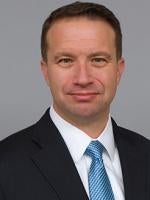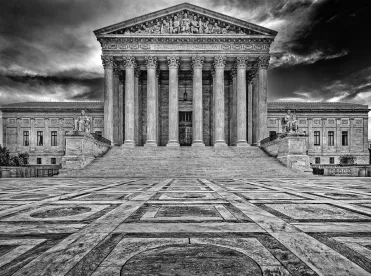The U.S. Supreme Court on Monday denied the petition for certiorari seeking review of the U.S. Court of Appeals for the Ninth Circuit's most recent decision in Spokeo v. Robins (Spokeo II), foregoing an opportunity to clarify the confusion that has ensued since the Supreme Court's 2016 decision in Spokeo (Spokeo I) on the issue of Article III standing. In Spokeo I, the Supreme Court held that intangible injury may satisfy the "concrete injury" requirement for standing, but lower courts have since struggled to apply the Court's holding.
In Spokeo I, the Supreme Court held that Article III standing's concrete injury element may be met by a showing of "intangible" harm, and that violation of a statutory procedural right, therefore, may satisfy this element. The Court explained that "both history and the judgment of Congress" play important roles in the determination of whether an intangible injury in fact satisfies the concreteness element. The Court then remanded the case to the Ninth Circuit for analysis of whether the plaintiff's claim—under the Fair Credit Reporting Act (FCRA) for Spokeo, Inc.'s generation of a web profile of plaintiff containing alleged inaccuracies—was supported by an allegation of concrete harm. (Our previous alert on Spokeo I may be found here.)
Following Spokeo I, lower courts have reached a variety of results applying the Supreme Court's holding in cases involving alleged intangible harm. These cases have frequently involved alleged procedural violations of consumer protection statutes, such as the FCRA and the Telephone Consumer Protection Act, as well as the alleged "risk of harm" to consumers following data breaches. (For our previous alerts discussing lower court decisions in the wake of Spokeo I, see here and here.)
In Spokeo II, on remand from the Supreme Court, the Ninth Circuit concluded that the plaintiff sufficiently alleged a concrete injury, reasoning that the alleged inaccurate information Spokeo published about him—including material inaccuracies about his age, marital status, education, wealth level, and profession—demonstrated harm to the real-world interests Congress sought to protect through the FCRA, such as the plaintiff's employment prospects. (Our previous alert on the Ninth Circuit's decision in Spokeo II can be found here.)
Spokeo thereafter sought certiorari from the Supreme Court for a second time, arguing that its decision in Spokeo I had resulted in "confusion among the scores of lower court decisions that have taken very different approaches" in applying the decision. Numerous amici filed briefs in support of Spokeo's cert petition.
In a one-line order, the Supreme Court denied Spokeo's cert petition, but that may not be the Court's last word on standing this term. Still pending before the Court is a petition for certiorari in CareFirst v. Attias, a data breach class action stemming from the hacking-facilitated theft of personal information for approximately 1.1 million policyholders. CareFirst is seeking review of the reversal by the U.S. Court of Appeals for the District of Columbia Circuit of a district court order dismissing the data breach class action on standing grounds. The Supreme Court will consider the cert petition in Attias at its next conference, which is scheduled for February 16. In the meantime, lower courts will be left to wrestle with application of the Spokeo I concreteness standard in cases involving the disclosure of personal information protected by law.





 />i
/>i

